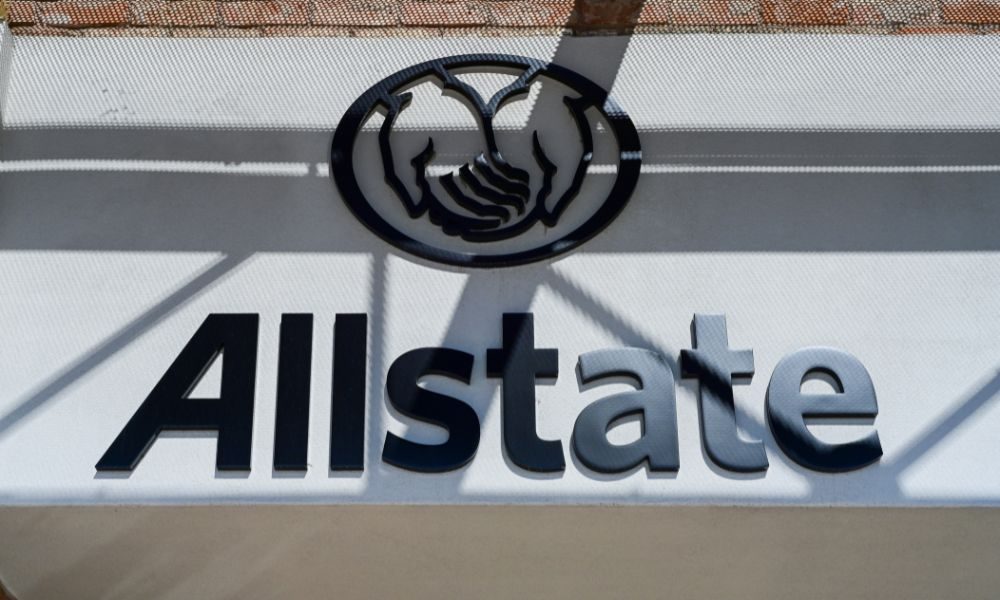shutterstock / Formatoriginal
From the stop-and-start housing market of the pandemic to Liz Truss’s catastrophic Mini-Budget and the rate chaos that ensued, brokers have experienced a stressful four years.
The toll of these multiple challenges on the mental health of advisers was laid bare in a survey published last May by the Mortgage Industry Mental Health Charter (MIMHC), which was the first major study of its kind for the industry.
Many brokers reported working long hours, not getting enough sleep and lacking mental-health support from their employer.
“The past 12 to 18 months have been the worst since the credit crunch,” says Coreco managing director Andrew Montlake.
We have seen new brokers actually leave the industry because it is too hard
“I’d go so far as to say that we are bang in the middle of a mental-health crisis for brokers.”
Emotionally demanding role
Even in times of relative economic stability, the nature of the job means it can be an emotional rollercoaster because of what is at stake for borrowers.
Brightstar group chief people officer Clare Jupp says: “You are trying to help clients to achieve lifelong dreams, which is extremely rewarding but can also be difficult. Emotions are heightened.
“On the specialist side, you are dealing with people who have already been declined on the high street and there can be tricky conversations.”
Lots of firms are starting to see that it is not some kind of gimmicky bolt-on to say, ‘Let’s talk about mental health’
Montlake adds: “I am not sure that people get quite how passionate brokers are and the lengths they will go to for their clients.”
But these ever-present challenges of the job have been overlaid with extra pressures as living costs have stretched many borrowers’ finances to their limit, and frequent rate changes mean the goalposts are continually shifting.
New work patterns
Montlake believes that the huge shift in working patterns since the pandemic has had both positive and negative consequences for brokers’ wellbeing.
Increased ‘broking from home’ may offer flexibility but it can also result in isolation and a lack of boundary between the job and one’s personal life, if not managed carefully.
100% of firms should signpost people to where they can go if they are struggling
Less face-to-face contact can mean colleagues are slower to pick up on cues that someone is struggling, and there are fewer opportunities to offload and share stresses during water-cooler moments.
On top of this, market conditions have resulted in a dramatic increase in workload.
“Because of all the rate withdrawals, brokers have been working three times harder than ever and for half the income, because cases are having to be rebrokered when there is a rate change,” says Montlake.
“Lenders will say, ‘Don’t worry. We have given you till 10pm or midnight tonight.’ Therefore, you have got to stay late.
We are setting up lots of walking groups in different areas, for people to meet up and chat
“I have people messaging me from around the country, saying, ‘This is ridiculous. I’ve just had to cancel another family event.’
“We have seen new brokers actually leave the industry because it is too hard.”
Even though there has been cause for optimism with better pricing over the past couple of months, in recent weeks rate increases have caused jitters.
“People are so battle scarred from the past 18 months that it doesn’t take much to feel close to the edge — not just brokers but business development managers, admin staff, lenders,” adds Montlake.
Mental-health charter
The situation he describes is a kind of collective burnout, where several years of stress, uncertainty and long working hours have depleted the mental resilience and energy reserves of many.
“It’s something we need to address; otherwise we will see more people leave the industry,” he warns.
There are people in your business now who are suffering and there always have been
The MIMHC, of which Coreco is a co-founder, is an initiative aiming to do just that.
It was launched in October 2021 by Crystal Specialist Finance group sales director Jason Berry, alongside leaders from six other firms: Brightstar Group, Chartwell Mortgage Services, Coreco, Knowledge Bank, Landbay and SimplyBiz Mortgages.
At the time of writing there are 107 signatories to the charter — with a reach of more than 20,000 employees between them — all of which have pledged to improve mental-health awareness and support for their staff.
For Berry, one of the benefits of the charter is that it enables firms to pool both resources and experience.
Signatories that have already done a lot of work on their company culture, set up support schemes or produced training materials have shown a willingness to share what they have learned with those just starting out on their journey of change.
This is a great initiative as it comes at no cost to firms
“It is a benefit for non-corporate signatories to get an understanding of what good practices could look like,” says Berry. “But, for those businesses that have got really good processes in place, they still want a sense check because they want to get even better.”
Although the increase in signatories has been encouraging, Berry acknowledges that there is a long way to go.
In the survey carried out by the MIMHC last year, 42% of respondents reported being offered no wellbeing support at their place of work, or did not know if their employer had anything in place.
First aiders
Introducing mental-health first aiders is one step firms can take to provide a visible point of contact, to whom staff can speak in confidence if they are experiencing difficulties.
Jupp says: “We have built up our first-aider team to 10 people, and we have tried to make it as diverse as possible so that different people can find someone they feel comfortable talking to.”
Businesses can find out more about training their own mental-health first aiders at: mhfaengland.org.
People are so battle scarred from the past 18 months that it doesn’t take much to feel close to the edge
Jupp adds: “Lots of organisations are starting to see that it is not some kind of gimmicky bolt-on to say, ‘Let’s talk about mental health.’
“At some point, most people will experience a life-changing event or challenge. There are people in your business now who are suffering and there always have been.”
Jupp has a personal story: “I have always considered myself to be a confident and outgoing person but, after losing my sister, suddenly it turned my whole world upside down and I started suffering from anxiety.
“Rob [Clare’s husband and Brightstar group chief executive] has been very open about his own depression; that it is not something you have that then goes away forever.
For businesses that have got really good processes in place, they still want a sense check because they want to get even better
“It is something that, from time to time, you will be going through.”
When leaders feel able to share these personal struggles, it can remove the fear and enable others to open up, she says.
Pepper Money sales director Paul Adams and Knowledge Bank lender relationships manager Jonathan White are among other industry figures to share their mental-health difficulties in recent years.
‘Walk and Talk’
This year, the theme of Mental Health Awareness Week (13–19 May) is ‘movement’, and the MIMHC is encouraging firms to take part in ‘walk and talk’ events to highlight the benefits of physical activity for mental health.
Participants will be asked to engage in meaningful conversations while walking and recording their step count.
Knowledge Bank chief executive Nicola Firth, one of the charter’s founder signatories, says: “We are setting up lots of walking groups in different areas, for people to meet up and chat.
“You don’t have to be from the same business; or you might work from home.
“Everyone can take part and it’s a great initiative as it comes at no cost to firms.”
It’s something we need to address; otherwise we will see more people leave the industry
Also during Mental Health Awareness Week, Berry will be joined by a number of industry colleagues to embark on a five-day walk, from Crystal’s Tamworth office in Staffordshire to HSBC’s Canary Wharf headquarters in London.
More information on these activities, including an information pack containing resources, will soon be available on the charter’s website: mimhc.co.uk.
Annual benchmark
To coincide with the awareness-raising activities, the MIMHC will publish its follow-up to the industry survey it carried out last year.
This annual health check will form an important benchmark for mental wellbeing in the sector and show where improvements are needed.
Because of all the rate withdrawals, brokers have been working three times harder than ever and for half the income
Berry does not foresee a dramatic change in the results this year because brokers still face many challenges. But he has a clear ambition, which need not be an expensive undertaking for the industry.
He says: “I think that 100% of firms in the marketplace should be signposting people to where they can go if they are struggling.”
All eyes will be on the survey results in May to find out what progress firms have made and where they need to focus their efforts next.
This article featured in the March 2024 edition of MS.
If you would like to subscribe to the monthly print or digital magazine, please click here.
Original Article





